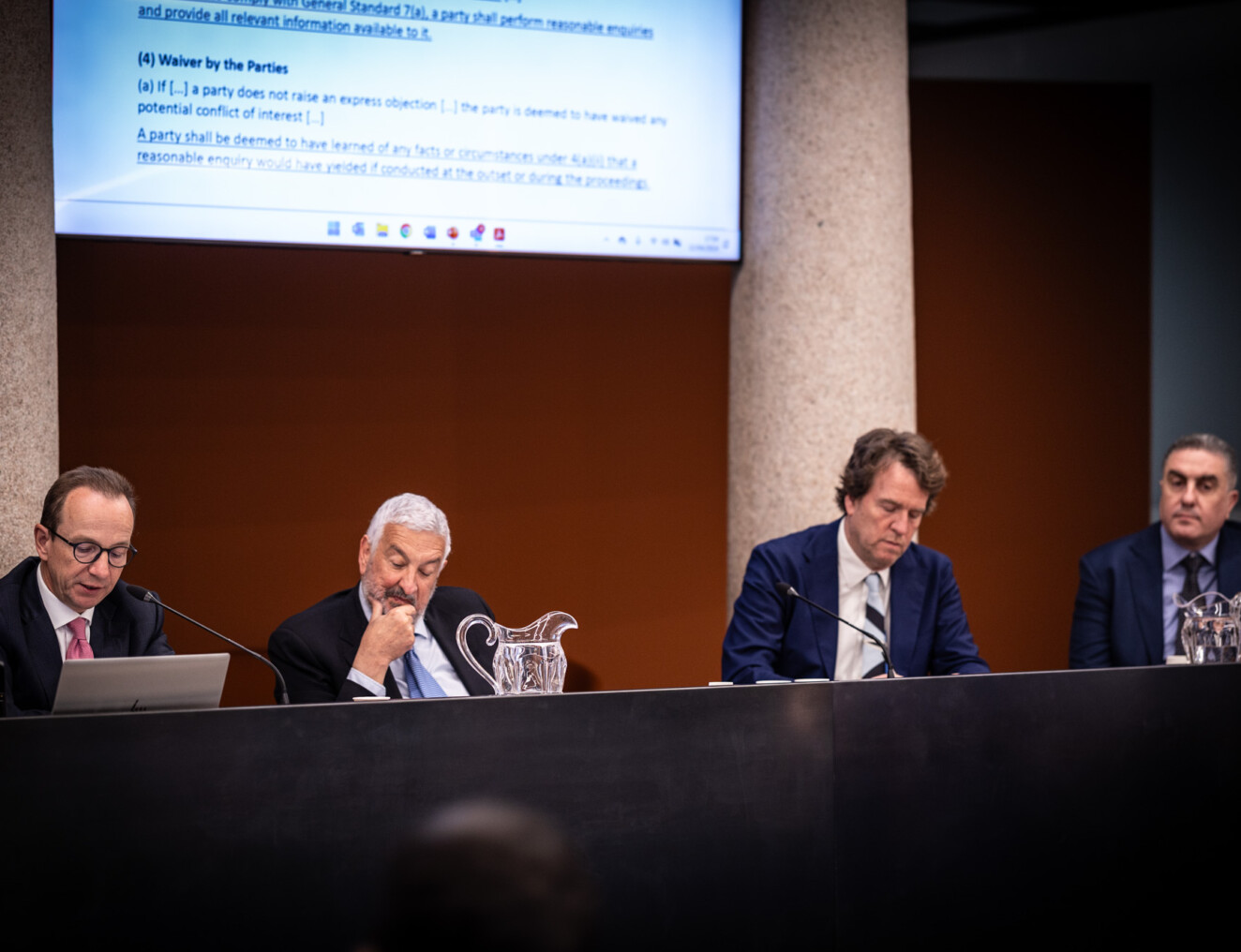The United Nations Commission on International Trade Law Code of Conduct and the IBA Guidelines were the focus of a study day organized by Macchi di Cellere Gangemi and LCA Studio Legale with the patronage of the Italian section of the International Law Association and the accreditation of the Milan Bar Association. The workshop “Ethical Standards for International Arbitrators” took place on Friday 12th April in Milan, both in presence and online.
The specification of ‘ethical standards’ to safeguard the impartiality and independence of arbitrators is crucial in international arbitration, where parties from different geographical origins and legal backgrounds can choose the members of the arbitral tribunal. The topic is traditionally the subject of soft-law instruments of international origin, and has recently been reconsidered by the United Nations Commission on International Trade Law (UNCITRAL) and the International Bar Association (IBA). The result was the Code of Conduct for Arbitrators in International Investment Dispute Resolution adopted by UNCITRAL in July 2023, based on drafts developed by the UNCITRAL and ICSID secretariats whose use is recommended to arbitrators and arbitral institutions active in foreign investment arbitration by the UN General Assembly, and the revision in 2024 by the IBA of the relevant Guidelines on conflict of interest in arbitration, adopted in 2004, first updated in 2014 and a reference point on the subject.
With opening remarks by Gian Paolo Coppola (LCA Studio Legale), Anna De Luca (Macchi di Cellere Gangemi) and Francesca Zanasi (Bar Council Milan), the first panel “The UNCITRAL Code of Conduct for investment arbitrators: Prospects and challenges of implementation” featured Anna De Luca (Macchi di Cellere Gangemi) as Chair, with speakers Evgeniya Goriatcheva (Permanent Court of Arbitration), Samantha J. Rowe (Debevoise & Plimpton LLP), Carlo de Stefano (Roma Tre University) and Corentin Baslé (UNCITRAL Secretariat).
The discussion focused on the practical impact of the Code on the PCA’s regulation of ‘disclosure’ by arbitrators as an instrument of soft law and the provision of limits on arbitrators accepting assignments as counsel in other arbitration proceedings. The speakers highlighted specific obligations of arbitrators under the Code, as those expressed in art 6 on integrity and competence, art 5 on diligence, as well as art 3, 11 and 4. The panel also discussed the impact that the Code is expected to have in the near future.
The second panel “The Revision of IBA Guidelines on Conflicts of Interest in International Arbitration of 2014: Prospect and challenges” featured Claudio Visco (Macchi di Cellere Gangemi, vice-president of IBA) as Chair, with speakers Gian Paolo Coppola (LCA Studio Legale), Xavier Favre-Bulle, Lenz & Staehelin (co-chair of IBA Arbitration Committee) and Michael McIlwrath (MDisputes).
Among the topics, the changes in the Guidelines and the practical application on the general standards. The speakers also showed data collected by ICC statistics about arbitration in Italy, discussing limits of data collecting in this specific area as well as opportunities to increase the presence of Italian arbitrators in the world of international arbitration. Interesting points were raised about specialized courts as well as enhancing a dialogue between guidelines and court decisions.
At the close of the seminar, Prof. Attila Tanzi, President of ILA Italy, made concluding remarks on the impact of soft law instruments in arbitration and judicial practice.
The news also on LeadersLeague



